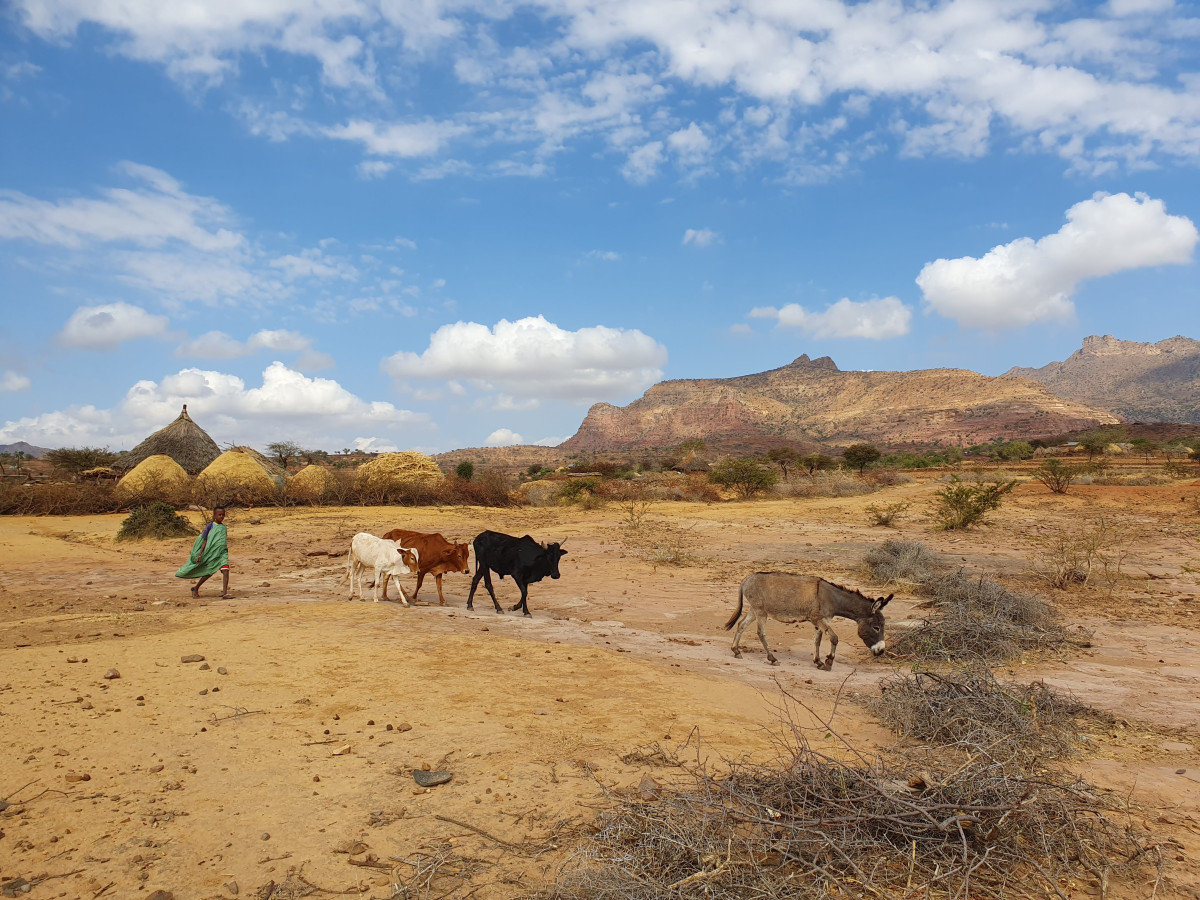Awakening from the Shadow of War: Our Aid Efforts in the Tigray Region in Ethiopia
Published: Apr 17, 2024 Reading time: 4 minutes Share: Share an articleThe conflict in the Tigray region in Northern Ethiopia has resulted in numerous casualties, injuries, displacement, and deprivation of necessities. Infrastructure across the region has suffered extensive damage and pillaging, exacerbating a severe humanitarian and economic crisis. At People in Need (PIN), we are working to reduce the impacts of this dire humanitarian situation.

A two-year-long war in northern Ethiopia ended in November 2022. However, people have yet to recover from the destruction it wrought. An estimated 7 million people are affected by humanitarian, financial, and psychological crises brought on by the war. Critical infrastructure, including schools, has been destroyed or looted. As a result of the war, around 80 % of all healthcare facilities were damaged and/or vandalised, either fully or partially. The Tigray region faces imminent threats of drought and shortage of food, further exacerbating the suffering of its inhabitants.
Response in Tigray
Despite the peace deal, Tigray continues to grapple with significant challenges, including mass displacement, food insecurity, and gender-based violence. Access to humanitarian aid remains restricted due to logistical and funding constraints.
In response to the crises, we have focused on education and access to clean water. With the support of the European Union, the Ministry of Foreign Affairs and donations from the Czech people (through our People in Need Club of Friends), efforts are underway to rehabilitate schools, provide educational materials, and improve access to clean water and sanitation facilities through rehabilitation of community water sources.
Recently, we have focused on rehabilitating the existing learning spaces and buildings. Thus, we are working to rehabilitate four pre-primary and primary schools in the two selected woredas. The schools will be furnished with the necessary furniture (blackboards, desks). Teachers will get training, and we plan to distribute educational and recreational materials to schools and provide teaching and learning materials to teachers. Scholastic materials will be provided to 400 students at the four selected schools.
From 2021 to January 2024, 59 water schemes were rehabilitated (44 in Samre and 15 in Seharti). We trained 450 participants in Water, Sanitation, and Hygiene (WASH) committees, and Hygiene and we provided sanitation promotion training for 185 participants. We also built sanitation facilities: Among the 11 blocks of latrines planned to be rehabilitated, 2 blocks of latrines were rehabilitated in Samre woreda health center. Additionally, 9 shallow wells will be rehabilitated and 600 house holds will receive Non food item equipment. Sanitary material was provided to 6 health centres. Water storage tanks were provided to the schools to ensure safe water for the children.
The humanitarian crisis
The education system in Tigray faces significant challenges, with schools lacking essential resources and infrastructure. Many students attend school without basic learning materials, and teachers have gone unpaid for months. The security problem in some of the schools has led parents to stop sending their children to school.
WASH services were already inadequate in Tigray before the conflict. The region witnessed low water supply coverage: only 32.49% of the region's people have access to safe water, mainly due to non-functional water schemes.
There was also limited access to safe water sources: almost 70 % of the population relies on unprotected sources like rivers and ponds. These sources expose them to waterborne diseases. The sanitation facilities are insufficient, and only less than 10 % of households have latrines, leading to widespread open defecation and sanitation-related illnesses.
Despite ongoing challenges, we remain committed to supporting the people of Tigray and alleviating their suffering in the wake of the conflict.
ABOUT THE WAR IN TIGRAY
Beginning in 2020, the Tigray People's Liberation Front (TPLF) engaged in a two-year-long war with the federal government of Ethiopia. This war caused widespread devastation to the country's economy, social fabric, and mental well-being. It was sparked by a power struggle in November 2020, electoral disputes, and calls for political reform. After two years of turmoil, negotiations led to the end of the war. The Ethiopia–Tigray peace agreement, also known as the Pretoria Agreement or the Cessation of Hostilities Agreement (CoHA), was signed on November 2, 2022, in Pretoria, South Africa.



